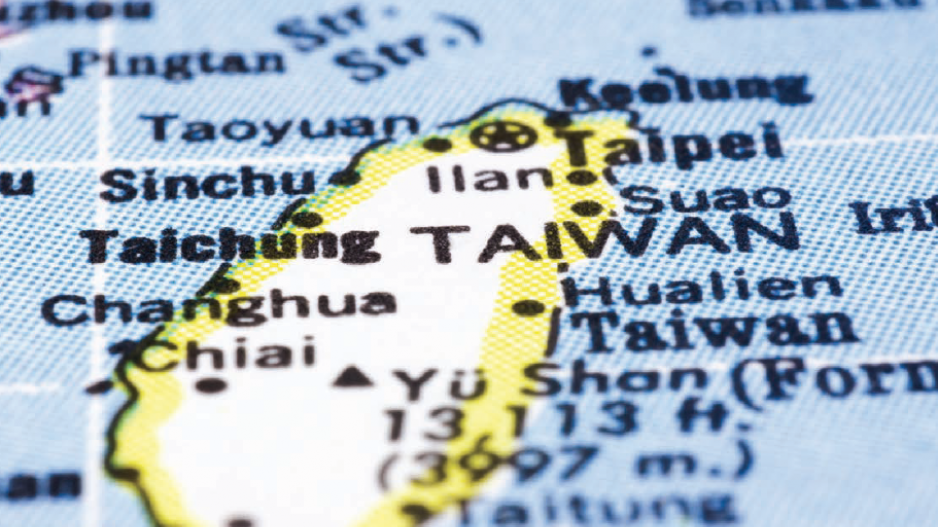Since Russia’s invasion of Ukraine in February, observers have been asking questions about an obvious parallel case: Would there be a similar conflict across the Taiwan Strait – something that would have profound implications in B.C.?
Canada has minimal trade with Russia or Ukraine and is relatively unaffected (when compared with Europe) by the natural gas shortage triggered by the war.
The economic relationships at stake if China acts on recent threats toward self-governing Taiwan – viewed by Beijing as a rebel province – are much more significant.
China is both Canada’s and B.C.’s second-largest trade partner, despite tensions that have ratcheted up over the past five years. The Chinese market was the destination for $9.1 billion in B.C. exports and the source of $18 billion in imports in 2021.
Trade with Taiwan, meanwhile, is smaller but still significant –with B.C. exports reaching $826 million and imports $6 billion, in 2019.
In both cases, the percentage of B.C. trade with either market is higher than Canada’s national trade figures, something that highlights B.C.’s higher exposure to major Asian markets.
In that sense, with greater economic stakes, Canada should learn from the Russia-Ukraine war that the current efforts to deter major foreign powers from taking unilateral military action may not be enough, said Jonathan Berkshire Miller, director of the Indo-Pacific Program at Ottawa
think tank Macdonald Laurier Institute.
“I mean, immediately after Russia invaded Ukraine, people would turn to Taiwan, and I think many are already thinking of Taiwan,” Miller said. “But it’s not so simple as just one Taiwan comparison. What we saw on Feb. 24 was an unbridled prosecution against what the rule-based order is.… So for us to just sort of allow that to happen has inherent problems.
“Obviously, we are punishing the aggressors [Russia] through sanctions and military assistance to Ukraine. But the reality is, we didn’t have the tools to deter and to stop the war from happening. So [I] think we really have to learn those lessons.”
Miller surmised that Russian leader Vladimir Putin likely counted on Europe’s support for Ukraine disintegrating over internal policy divisions, while
also expecting the North Atlantic Treaty Organization (NATO) to not escalate the situation over a non-NATO ally. The fact that Moscow was willing to call that bluff, Miller said, may mean that others – like Beijing – will be willing to do so as well, regardless of Russia’s lack of success since the war started.
“That situation has profound lessons, because if that bluff was able to be called, what happens when we look at Taiwan?” he said. “We’ve seen military exercises by China throughout the Taiwan Strait recently … and Taiwan is also not an official ally of the West. So our thought process should be: Are we just going to allow that to happen again?”
Tensions between China and Taiwan spiked in late July when U.S. House Speaker Nancy Pelosi visited Taipei during her tour of Asia. Since then, Chinese naval vessels and military aircraft have frequently entered Taiwan’s air defense identification zone (ADIZ), although the angry rhetoric from Beijing has calmed somewhat in recent months.
For Western Canada, whose trade with China is vital to agriculture, wood products and mineral resource sectors, the spectre of military conflict in the Taiwan Strait is a risk that cannot be dismissed, said Canada West Foundation Trade & Investment Centre director Carlo Dade.
But Dade added that, while many observers view China’s extensive economic links throughout the world as leverage for Beijing as it pushes its geopolitical goals, these links may also serve to moderate China’s aggression toward Taiwan.
“It’s similar to Japan in that it doesn’t want disruptions,” Dade said of China’s position on global trade and supply chains. “China depends on exporting, and it’s more than just natural gas to Europe and Western economies [like Russia]. So I think China’s stability rests on its ability to constrain Russia to prevent severe damage to the international system of the movement of goods.
“Global instability doesn’t really work for China, so their feelings on Russia may be even harder than that of the Americans because China has less ability to withstand a global economic shock.” Ottawa should learn from the current situation in Europe, find fitting parallels and plan for the effective deterrence of a conflict that would be far more harmful to Canadian trade interests.
This likely has been considered in Washington and Canberra, Miller said.
“We’ve said to allies like Germany that there’s no business case for LNG [to Europe] because it doesn’t fit with our vision of a carbon-free future,” Miller said. “And we have our allies who are potentially at the point of freezing in the winter because they don’t have enough gas. So I think the messaging is a little off.
“There is no magical switch where you can just turn on, and LNG would show up suddenly in Germany. It required a multiyear infrastructure effort that would have started years ago, and my concern is that the government is also not thinking about the crises of tomorrow, in the same way where our European allies need energy now, but we can’t do it. What will happen in five, 10, 20 years? We have the ability to plan for those
things.”




